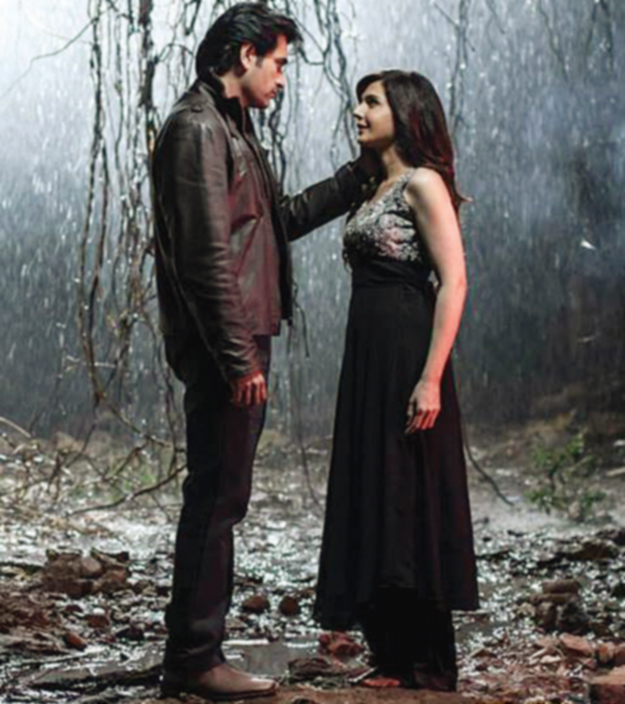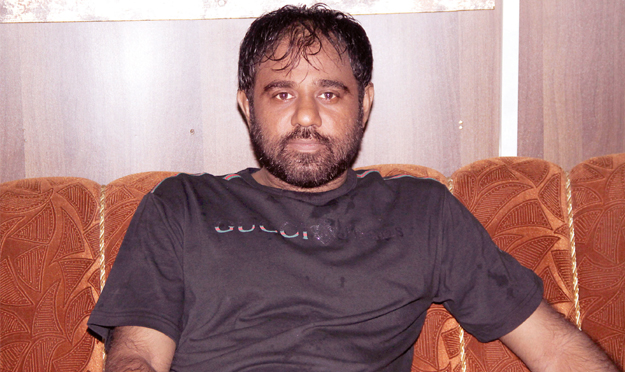Pakistani cinema is having a bit of a moment. Decades of collective angst over the slow decay of its much put upon mainstream film industry – Lollywood – is giving way to excitement over a sparky and emergent independent film scene. Driven by a growing and determined breed of filmmakers mobilising all the resources at their disposal to raise funds, crew and a camera or two, this is the cinema of Pakistan’s film school generation, out to change an outdated narrative, one small film at a time.
Iram Parveen Bilal is one such filmmaker, and her first film
Josh is exactly one such film. It’s showing this week as part of the
London Indian Film Festival – the Festival’s first ever screening of a Pakistani film.
Starring two of Pakistani television’s finest actors, and real-life power couple, Aamina Sheikh and Mohib MIrza, Josh tells the story of a high school teacher living in Karachi, whose blissful ignorance about the realities of life in rural Pakistan is shattered when her nanny goes missing. Screened as the inaugural film at the 14th Mumbai Film Festival in October 2012, the film got rave reviews. It’s also fresh from a round of sold out screenings across the USA and Canada.
Iram Parveen Bilal
We caught up with Iram a couple of days ago, and she told us about the inspiration behind Josh, what it takes to make an independent film in Pakistan, and her plans for a certain Shahrukh Khan.
Us: What’s Josh about?
Iram: It’s a film about many things – class separation, education, women’s rights, feudalism and the youth movement. It’s about what happens when you find your world turned upside down and you want to take control of your life again. It’s also a story of hope, of trying, of redemption. And in that way, it’s the story of Pakistan, and of the pain, the pleasure and the spirit of unity and independence. Ultimately, if I were to pick one thing, it’s a film about never giving up.
Us: Was there a particular inspiration behind the film?
Iram: There’s an initiative in Karachi called Khana Ghar, which is run by an activist called Parveen Saeed and provides affordable meals to the city’s poor. That was an initial motivation, but the script and story are completely original. I wanted Josh to be a film which showcased sides of Pakistan the international community wouldn’t know of or expect. It was also important to me to raise a voice against injustice and the fragmentation of society. I started with a general idea of what I wanted to say and then brainstormed the type of characters audiences would want to watch or know better. That’s how any script really starts and that’s how Josh started after the initial inspiration.
Us: Making films anywhere in the world, but particularly in a country like Pakistan where the film infrastructure is so limited, is a tough ask. What made you do it?
Iram: Because I am crazy. You have to be crazy to want to make a film. The film took 35 days to shoot. It was a long, hectic, gruelling 6 months in Karachi in the summer, with Ramadan falling smack in the middle of location scouting. There is a lack of film infrastructure in Pakistan so everything takes more time and energy but that being said, the rewards are unique since the country is largely untapped and unfilmed.
Us: What was your favourite or most memorable part of making the film?
Iram: Late night eruptions into group singing. There was just such great camaraderie on set. We were exhausted and overworked but totally excited. And inspired.
Iram with some of the cast of Josh
Us: Josh is releasing in Pakistan in less than a month’s time. How are you feeling about that?
Iram: I am anxious. There is a large section of Pakistan’s audience which is more used to big budget Hollywood and Bollywood films, and not so much to the pace of independent films. That said, I know we have an audience that is ready for something different, and will appreciate the film.
Us: What do you think of the recent emergence of independent films in Pakistan? Do you think its headed in the right direction?
Iram: Absolutely. The most important this is that it’s a movement from the ground up. It’s no longer just people from film families making films, which means more of society is being represented in the narrative voice. That will hopefully lead to a greater variety of films, and ultimately a cinema which is thick and strong.
Us: Many of these films have been largely focussed on powerful social narratives. Why do you think so many filmmakers choose to go that way?
Iram: Pakistan is always in turmoil and so you can either focus on the turmoil or go completely escapist in your narratives. Those are two natural reactions, which are reflected in current films. But we’ve only just restarted the process of making films, and the more that are made, the wider the spectrum will get.
Aaminah Sheikh as Fatima
Us: You originally trained as en engineer. What made you switch to film-making?
Iram: I think I was too impatient to wait for a scientific discovery that would help mankind. I wanted to see a quicker reaction to my work. Films are such a strong source of visual resonance between human souls that the inspiration that comes from that is unmatched. I think living is to inspire and be inspired, hence films and art.
Us: What types of projects would you like to be working on in the future?
Iram: I never think very far ahead into the future. Six months from now though, I would love to be directing Mr SRK.
There are two screenings of Josh as part of the London Indian Film Festival – on Tuesday 23rdand Wednesday 24th July. Each screening will be followed by a Q&A session with the director





























